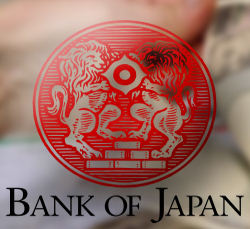It was the week of central bank announcements – Japan (we will describe it below), Britain and ECB. Bank of England and ECB policy remained unchanged, which means that interest rates are at the same low levels and the BoE maintained bond purchases. Monetary theory teaches us that once the rates are low, central banks try to help economy or, in other words, if everything is OK, as politicians have declared for more than 5 months, we will be witnessing higher rates. Mario Draghi had to answer to zerohedge´s questions: what would happen if any member of the Euro zone quitted (Cyprus, Greece or Spain)? The answer was very indicative: “Well, you really are asking questions that are so hypothetical that I don’t have an answer to them. Well, I may have a partial answer. These questions are formulated by people who vastly underestimate what the Euro means for the Europeans, for the Euro area. They vastly underestimate the amount of political capital that has been invested in the Euro.“ What does it mean? They are very probably to prepare to do whatever and at any cost to save the project of our currency. Mario Draghi also said that the Eurozone countries need the Bank-Loss regulation earlier than in 2018. EU leaders have set a June deadline to agree on principles how governments should handle bank failures, including through the so-called creditor bail-ins. According to the Commission data, EU has injected 1.7 trillion euros into the banking system since the 2008 and it is no longer possible to do so. In the meantime, the unemployment rate within the euro countries hit the record levels of 12 %. The euro-zone economy has contracted for five straight quarters and this unfortunate trend is forecasted to continue in the first three months of this year as well. And the data from the EU does not show any more optimism. This week’s announcement of the Manufacturing PMI has not been very optimistic. The PMI falls across Europe. Only Germany has modest decline, but France, Spain and Italy have steep downturns.
The International Monetary Fund will contribute 1 billion euros to the bailout package for Cyprus and the rest (9 billion euros) will be on the shoulders of euro-zone taxpayers. The conditions of help are pretty tough and include privatization of state-owned assets, budget cuts and budget deficit decrease – actually, there are plans for a 4 % budget surplus. So, we will see how many times they will need to change the deal. Another part of the deal is nationalization of uninsured deposits, which finally means that some depositors will lose 60 – 80 % of all money they have in bank accounts. So who is next? We speculated last week about Slovenia, but we have to admit that there are many more adepts. Is the Netherlands – one of the biggest allies of Germany once the austerity question came on the table – one of them? It could be. The Netherlands is experiencing the same deterioration of housing market as we witnessed in Spain. Its banks have a total of about €650 billion in mortgage loans on their books. Consumer debt amounts to about 250 percent of available income (125 % in Spain). In February, the government was forced to nationalize SNS Bank, the country’s fourth-largest bank, because it had a large portfolio of bad loans for commercial real estate.
Journalists released information about 2.5 million records from tax havens of about 130,000 people who at one time or another moved their money offshore. There are three interesting points about the issue. The report shows that people who have been in power many times (politicians, people behind them) and who prepare tax laws for their inhabitants in their home countries are on the list as well. The second point is that this is quite explicit empirical evidence that people do not want to pay high taxes. So, don’t we need to adjust our taxing systems and – accordingly – public expenditures? And the last point: why was it that the report was released right now, after the Cyprus nationalization bank deposit case? Does anybody plan to prepare the public for general rules about the taxing (nationalizing) of uninsured bank deposits? We will see it shortly. But there are already some attempts to follow the Cypriot example. One of them is Canada. The proposal to force creditors of the bank to absorb losses of banks was buried deep in last month’s federal budget and almost nobody noticed it. Do you need another example? What about New Zealand. Finance Minister Bill English is suggesting a strategy to deal with major bank failures. If a bank fails, all depositors will have their savings reduced overnight to fund the bank’s bail out.
Governor Kuroda has fulfilled expectations. The Bank of Japan will introduce new monetary measures, very similar to the measures used in the U.S. They are going to purchase all kinds of bonds with maturities as long as 40 years and the BoJ will increase its holding of exchange-traded funds and real-estate investment trusts as well. The monthly amount will be very close to the US amount – 7.5 trillion yen or $78.6 billion. Currency wars at their best.
Politicians are sometimes irredeemable. President Obama´s administration wants to enforce more home loans on people with weaker credits. They want to use usual taxpayer-backed programs that insure home loans of less valuable creditors against default. It seems to me that one housing bubble was not enough. And if you want to see how to use arms properly, you can watch and learn from Kim Jong-un:
http://www.youtube.com/watch?v=WWgmhWwj9Y4



